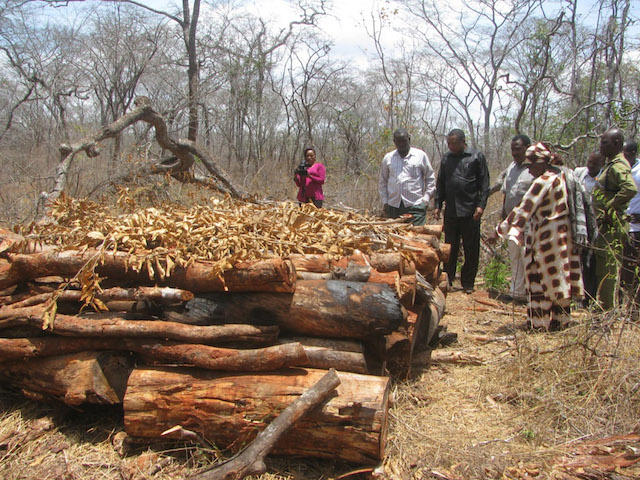Calls to Legalise Tanzania’s Charcoal Trade to Save Forests

DAR ES SALAAM, Tanzania, Apr 30 (IPS) - Tanzania's government has been urged to embrace sustainable charcoal production to protect the country's forest cover amidst failed attempts to abolish the local charcoal trade.
"Biomass is a predominant source of energy, we should think of a way to make it safer and sustainable instead of banning it," Lubera Mato, an environmental expert from Tanzania's Ardhi University, told IPS.
The government estimates between 130,000 and 500,000 hectares of forests are being destroyed every year due to charcoal production, poor farming and overgrazing. According to the Bank of Tanzania, the country loses around five million dollars a year in unpaid timber royalties.
This East African nation has 33.5 million hectares of forests, of which about 13 million hectares have been gazetted as national reserves. According to the Ministry of Natural Resources and Tourism, the random cutting of trees for timber and charcoal are among the major drivers of deforestation here.
"You cannot ban what is essentially the only available energy for cooking in urban areas without providing a feasible alternative," Tuyeni Mwampamba, a Tanzania scholar who has researched the local charcoal trade, told IPS.
The 2010 Tanzania Demographic and Health Survey states that fire wood and charcoal combined account for 94.6 percent of the country's cooking energy.
The country uses over one million tonnes of charcoal annually, half of which is consumed by households in Dar es Salaam. Tanzania has been using approximately 87 million cubic metres of trees for charcoal and firewood when only 64 million cubic metres per year is allowed.
According to the World Bank, the annual charcoal trade here is worth 650 million dollars. The Tanzania Forest Services (TFS) — an agency under the Ministry of Natural Resources and Tourism — says the the country's forest cover is under enormous pressure due to the expansion of agricultural activities, livestock grazing, wild fires and other human activity.
Charles Meshack, the executive director of Tanzania Forest Conservation Group, a leading NGO, told IPS: "We need a broader policy that would help steer the charcoal sub-sector towards better governance."
Mato urged the government to implement a policy that would set aside specific zones for cutting trees and charcoal making, and make it illegal to cut down endangered tree species.
Currently the country has no specific policy guidelines to regulate the sector.
Gwamaka Kifukwe, a senior policy analyst with the Uongozi Institute, a policy think tank dealing with governance issues, said Tanzania should aim to increase transparency in the forestry sector by establishing independent "watch dogs".
"We believe that existing governance measures in the forestry sector are insufficient. District authorities, which are watch dogs at grass root level, should be empowered," Kifukwe told IPS.
"The central government must develop harvesting plans of forest areas under its jurisdiction to achieve sustainable management … doubling the number and effectiveness of fixed check points will improve law enforcement."
But Juma Mgoo, an official at the TFS said that the government was in the process of formulating a comprehensive policy that would address the charcoal business. However, he refused to provide details of the envisaged policy or when a draft would be available for the public.
Leading conservationist Felician Kilahama said in order to save forests the government needed to subsidise consumers who depended on charcoal and firewood for energy.
"If we are to maintain our environment, we must accord high priority to forest conservation while subsidising households use alternative energy sources," he told IPS.
Kilahama also said there was a need to raise awareness among the community on the importance of forests to their lives and the environment.
© Inter Press Service (2014) — All Rights ReservedOriginal source: Inter Press Service
 Global Issues
Global Issues